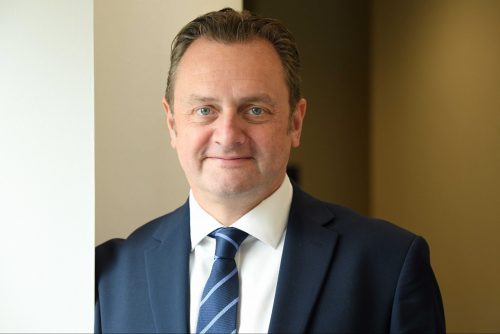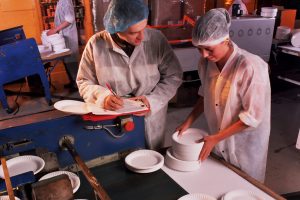Business activity growth gains momentum in April

The North West private sector made a positive start to the second quarter, the latest UK Regional PMI survey from NatWest showed, recording a strong rate of business activity growth alongside a faster rise in employment.
On the price front, local firms recorded a sharp and slightly accelerated increase in average prices charged for goods and services, despite signs of easing cost pressures.
The headline North West PMI Business Activity Index – a seasonally adjusted index that measures the month-on-month change in the combined output of the region’s manufacturing and service sectors – registered above the 50.0 no-change mark for a third straight month in April.
Furthermore, at 53.5, up from March’s 50.7, the latest reading signalled the strongest rate of growth for a year.
April survey data showed a third straight monthly increase in new business across the North West.
Despite picking up slightly from March, the rate of growth remained only modest and was noticeably slower than the UK-wide average. The increase in new work in the North West was driven exclusively by the region’s service sector, with local manufacturers recording a sustained downturn in demand.
Firms operating in the North West remained optimistic about the year ahead outlook for activity in April. Expectations edged up slightly from the previous survey period and were broadly in line with the national average.
Where an increase in business activity was anticipated, firms cited plans for new investments, expansions of product ranges and greater marketing activity.
The rate of job creation across the North West private sector accelerated at the start of the second quarter, after coming close to stalling in March. Latest data signalled a solid rise in employment that was the most marked since September last year. Even so, the pace of employment growth was weaker than that seen across the UK as a whole.
Hiring in the region was largely centred on the service sector, where there were reports of staffing capacity being expanded to meet higher demand and prepare for future growth.
As has been the case in each of the past 11 months, private sector firms in the North West recorded a decrease in their outstanding business – ie work awaiting completion – during April.
Furthermore, the pace of backlog depletion quickened to the fastest in the year-to-date. The decline was driven by the manufacturing sector, which saw a lack of incoming new orders to replace completed projects.
Latest data showed a sustained slowdown in the rate of input price inflation faced by firms in the North West.
This was highlighted by the respective seasonally adjusted index slipping further from last year’s record highs to the lowest since January 2021.
Although still historically strong, the rise in operating expenses in the North West was the least marked among the 12 regions monitored. Salaries and energy were the main sources of cost inflation, anecdotal evidence showed.
April saw another steep increase in average prices charged for goods and services by businesses across the North West, as higher operating expenses were often passed on to customers. The rate of inflation ticked up from the previous survey period and was considerably quicker than the long-run series average.
Malcolm Buchanan, chair of NatWest North regional board, said: “The North West economy showed renewed vigour at the start of the second quarter, recording the fastest growth in business activity for a year as well as an uptick in the rate of job creation.
“Business confidence has recovered strongly from the low levels seen late last year, moving slightly further above the long-run average in April, in a sign of resilience among the region’s firms.
“At the same time, however, the survey points to sticky inflationary pressures, with businesses recording another steep rise in average prices charged for goods and services, and at a quicker rate than the month before. This is despite costs pressures continued to ebb from the ultra-high levels we saw last year.”








